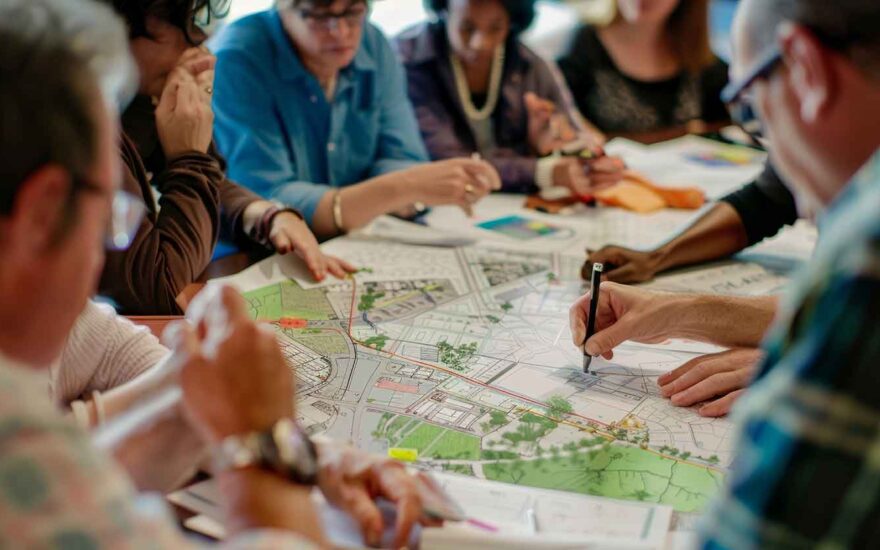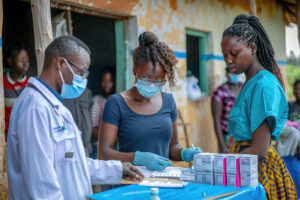When we think about health, we often imagine doctors, nurses, clinics, and medical interventions. But what actually makes a person, community, or society healthy? Who is healthy and who is not? Why? We know the conditions we need to flourish, but how do we create healthy communities—with safe housing, healthy and nutritious foods, and access to green spaces?


Why Study health, science and society at Clark?
- Make a difference in the well-being of others: Clark is a leader in the creation of innovative, interdisciplinary programs that prepare students to become leaders and drivers of societal change.
- Gain practical experience working collaboratively with communities in Worcester, Ethiopia, Puerto Rico, and beyond. You’ll be part of a close community of scholars and practitioners dedicated to fostering health equity and well-being in communities around the world.
- Your classes will draw from a diverse range of disciplines that will provide you with a rich, complex understanding of health and prepare you for a wide range of domestic and international careers.
- Apply
- Request Info
Are you ready to take the first step?
Featured Courses

Community Based Health Research
Students gain an overview of community health by conducting “hands on” research in the field, integrating theories and methods from medical anthropology, community and population public health, and medicine.

Health (in)equity: social determinants and policy solutions
Students will examine links between social, economic, political, and environmental factors that affect health; the use of indicators; the main methods of assessing social determinants; and how diseases are patterned

What is Public Health?
Students will be introduced to the field of public health as a mode of inquiry that focuses on population health and as a government institution that is designed to protect the public’s wellbeing.
You’ll take foundational courses to learn many approaches to health. In methods courses, you’ll learn to ask and answer questions to understand health challenges and find solutions to those problems. You’ll deepen your understanding of health challenges and promising solutions by completing three elective courses.
The major includes a practicum or internship where you can work in a clinical, laboratory or community health setting in Worcester, elsewhere in the US, or during study abroad. During your senior year, you’ll synthesize and present the knowledge you’ve gained through a capstone project or Honors Studio.
At Clark you’ll get more than a great education; you’ll also be prepared for a long, productive career and life of consequence. And once you’ve completed your degree, you can join other Clark alumni who have gone on to work for great organizations and attend some of the best graduate schools in the world.
Health Professions and Life Sciences
Non-profit, Human Services, and Education
Sustainability, Climate, and Global Change
Geographic Information Systems/Development Specialist
Development Alternatives, Inc.
Project Manager
Handicap International France
Associate Analyst
Abt Associates, Cambridge, Mass.
Communications Coordinator
Jeremiah’s Inn, Worcester Mass.
Serbia Project Coordinator
Balkan Trust for Democracy
The Clark Experience
The Clark Experience brings together the exceptional education you’ll receive in the classroom and so much more. Through focus and flexibility, it ensures you’ll leave Clark with the creativity, confidence, and resilience to succeed and lead a life of meaning and consequence.
Frequently Asked Questions
What can I do with a major in health, science and society studies?
At Clark you’ll get more than a great education; you’ll also be prepared for a long, productive career and life of consequence. And once you’ve completed your degree, you can join other Clark alumni who have gone on to work for great organizations and attend some of the best graduate schools in the world.
What skills does a major in health, science and society studies learn?
- Build a foundation in key disciplines that provide understandings of health.
- Develop an understanding of quantitative and qualitative approaches to studying health, measuring health patterns across populations, and understanding how social and cultural factors shape illness experiences.
- Gain practical experience deepening and applying these skills through a required internship or research project working in a clinical, laboratory or community health setting in Worcester, elsewhere in the US, or on study abroad.
- Deepen your understanding of community and global health, health psychology, public health, the sociology of health and medicine, and STEM approaches to health.
- Present your capstone experiences or research.
- Develop materials to launch your career.
Be a force for change.
Come study at a small research university with a strong liberal arts core.

